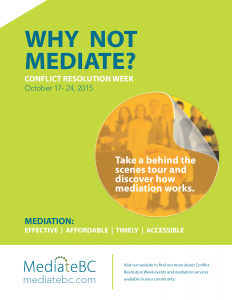We need & want your feedback.
We’ve just launched our Clicklaw Visitor Survey to find out more about the needs of Clicklaw users!
This will be our first user survey since Clicklaw went mobile-friendly – the survey will also be available to mobile users.

Visitors to clicklaw.bc.ca will be prompted by a pop-up window, which asks them to answer a short 5-question survey about their visit. Those who complete the survey will get a chance to enter a draw for a $100 Visa Gift card!
To prevent being asked to fill out the survey again on repeat visits, a cookie will be stored on the user’s computer after they have completed the survey. This cookie can be deleted or cleared by the user to view the survey again. Multiple entries will not be counted.
The draw is open to BC residents, though staff and contractors of Courthouse Libraries BC and their immediate family will not be eligible to enter.
Stay tuned for news about the survey! Subscribe to our blog on the left-hand navigation and follow us on Twitter: @Clicklaw.
 |
 |
 |
 |
|---|



